Yangon Galacticos from Myanmar pulled off one of esports' greatest underdog stories, claiming PMWC 2025 with 157 points and $547,000. Their Erangel mastery and tactical brilliance just redefined what competitive PUBG Mobile can look like.
The Tournament That Changed Everything
Picture this: 24 teams from 50 countries descending on Riyadh's BR Arena from July 25 to August 3, all chasing a piece of that massive $3,050,000 prize pool. PMWC 2025 wasn't just another tournament—it became the stage for one of the most incredible comeback stories in competitive gaming.
The format was brutal. Three elimination stages designed to separate pretenders from champions.
How the Gauntlet Worked
Group Stage (July 25-27): Twenty-four teams split into three groups, with only the top 8 earning direct passage to finals. Everyone else? Welcome to survival mode.
Survival Stage (July 29-30): Sixteen teams grinding through 12 matches for just 8 spots. One bad rotation, one mistimed push—and you're watching the finals from home.
Grand Finals (August 1-3): The final 16 battling across 18 matches using that unforgiving 10-point placement system. First place nets you 10 points, second gets 6, and every elimination adds another point to your tally.
Here's where it gets interesting—the Smash Rule. Teams needed to hit 128 points (10 above Day 2's leader at 118) AND secure a Chicken Dinner to claim victory. When nobody managed both? Highest total points takes the crown. Simple, but absolutely nerve-wracking when you're in the thick of it.
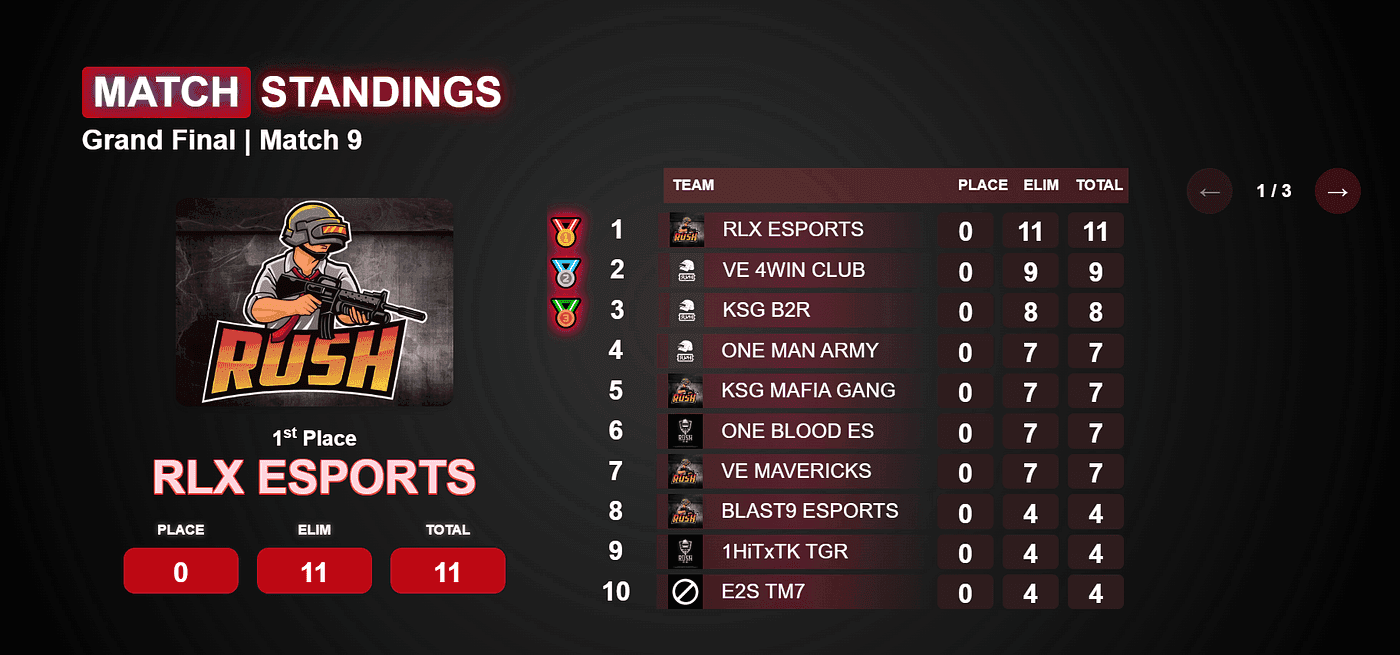
Prize money dropped off fast: $500K for first, $250K for second, then $150K, $120K, and $100K for the top five. The gap between winning and losing? Career-defining.
Yangon Galacticos: From Underdogs to Legends
Let me be honest—nobody saw this coming. This Myanmar squad formed just eight months ago in December 2024, and by tournament start, most analysts had them pegged as early exits. Boy, were we wrong.
The roster that shocked the world: Smile calling shots as IGL (29 eliminations), Marnett bringing the aggression (26 eliminations), SAYCLOUD dealing massive damage (6,078 total), and Romeo anchoring everything (17 eliminations). Coach Mako deserves serious credit here—his tactical framework transformed four talented players into world champions.
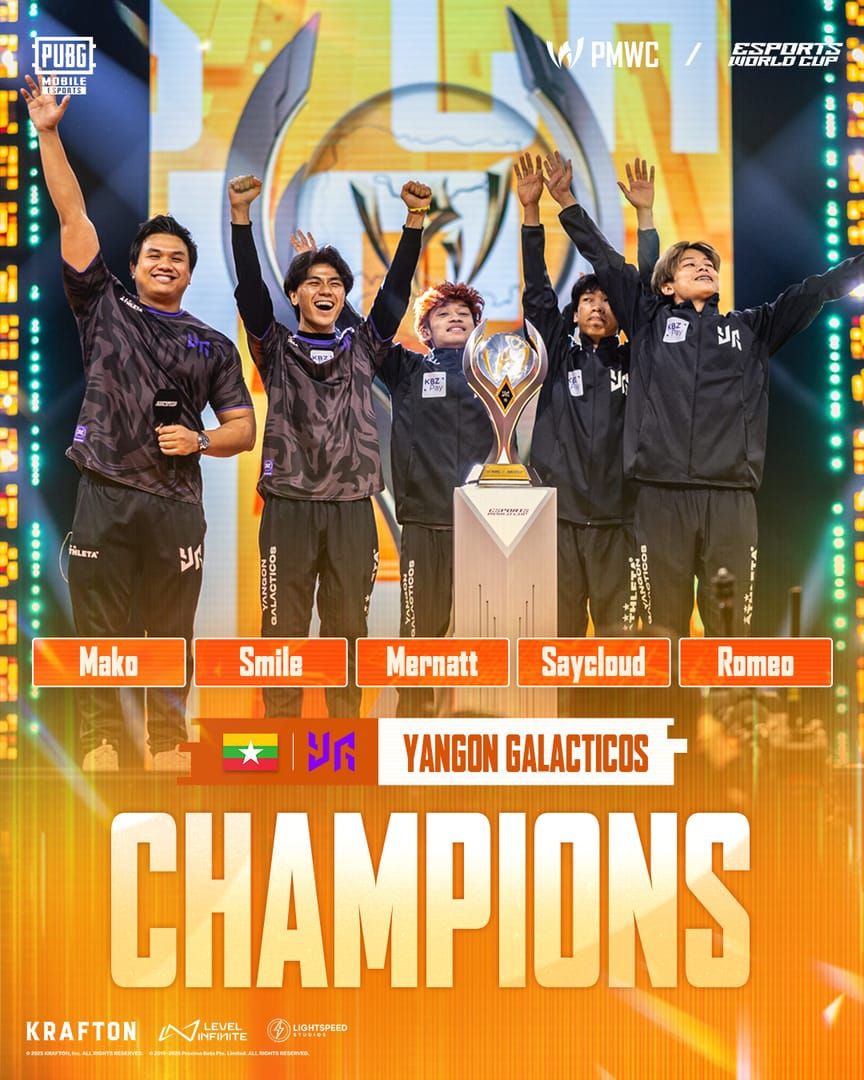
The Comeback Story Nobody Expected
Group Stage: Eleventh place with 75 points earned them $29,000 but forced them into that brutal Survival Stage. Not exactly championship form.
Survival Stage: Talk about clutch—they grabbed the final qualifying spot with 70 points, finishing 8th by a single point. Another $18,000 in the bank, but more importantly, they lived to fight another day.
Grand Finals: This is where legends are made. 157 total points (62 from placement, 95 from eliminations), four WWCDs, and a masterclass in balanced team play. Their utility usage tells the real story—127 smoke grenades and 143 frags show just how prepared they were for every scenario.
For players looking to optimize their competitive setup, PUBG UC Top Up ensures you've got everything needed for serious competition.
Breaking Down Their Dominance
Here's what's wild about Yangon's victory—they scored 101 of their 157 points on Erangel alone. Nine matches on that classic map, three of their four Chicken Dinners. They turned Erangel into their personal playground while struggling to crack top-8 on Sanhok even once.
The daily rotation favored them perfectly: one Sanhok match, three Erangel games, two Miramar rounds. Sometimes tournament luck matters, but you still have to execute when opportunity knocks.
Individual stats reveal their balanced approach. Smile's 1.61 K/D proved you can lead and frag simultaneously. Marnett's 1.44 K/D provided consistent pressure. SAYCLOUD prioritized damage over eliminations—smart team-first mentality. Romeo's 17 eliminations in an anchor role? Exactly what championship teams need.
The Meta That Dominated
Role Distribution That Actually Worked
IGL (Smile): Handled macro strategy and rotation calls while still dropping 29 eliminations. Leadership doesn't mean sacrificing individual performance—take notes.
Entry Fragger (Marnett): Created space and initiated fights with 26 eliminations worth of aggressive pressure. Classic entry role executed perfectly.
Support (SAYCLOUD): Focused on sustained damage output and utility management. Sometimes the scoreboard doesn't tell the whole story.
Anchor (Romeo): Maintained defensive stability and positioning. Seventeen eliminations from the anchor spot shows how well this system worked.
Their tactical elements were textbook professional play: early rotations, selective engagements, and coordinated utility usage for specific objectives rather than panic deployments.
Weapons That Won Championships
The Holy Trinity of PMWC 2025
M416 stayed the All-Round King with good reason. Optimal setup remained compensator, half/vertical grip, tactical stock, and 4x/6x scope for maximum stability across all ranges. When pros need reliability, they reach for the M4.
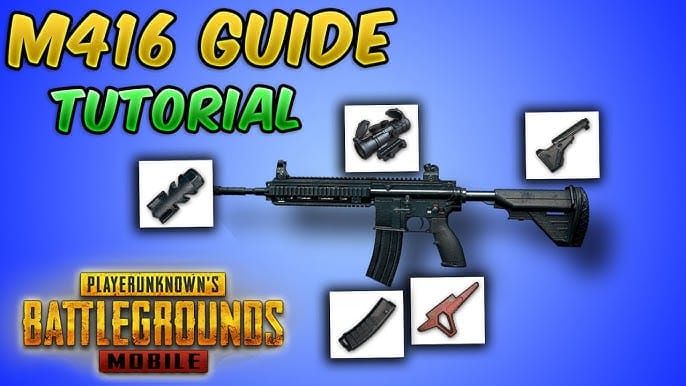
DBS shotgun absolutely revolutionized close-quarters combat. That dual-tube pump-action with 14-shell capacity delivers devastating two-shot bursts. Pro setup: Red Dot or Holographic for precise peek shots. If you're not running DBS in tight spaces, you're missing free eliminations.
DP-28 gained serious recognition for zone control. Fifty-one base damage, minimal drop-off, 47-round magazine—it's a different beast when you know how to use it. Professional setup includes 4x/6x scope (often adjusted to 3x), prone positioning for laser control, and prioritizing vehicle destruction.
Buy PUBG UC Online gives you convenient access to complete weapon optimization for competitive preparation.
Map Mastery: Why Erangel Made the Difference
Yangon's 101 points across nine Erangel matches wasn't luck—it was surgical precision. Their strategy emphasized early compound control (Pochinki, School, Military Base), vehicle prioritization, bridge control, and late-game ridge positioning for elevation advantages.
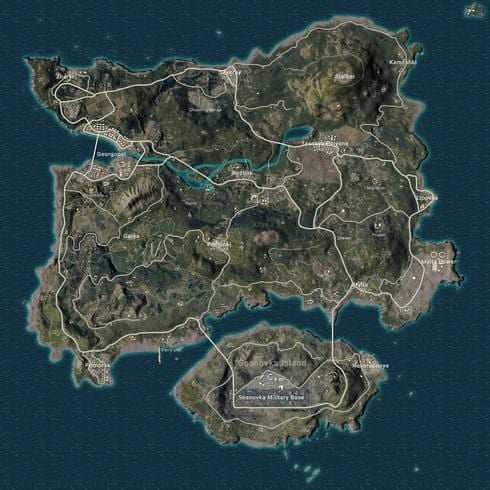
Their Sanhok struggles revealed tactical gaps that matter in fast-paced environments: aggressive early positioning, rapid decision-making, close-quarters prioritization, and minimal vehicle dependency. Even champions have weaknesses.
Pro vs Casual: The Communication Gap
Professional teams operate on different communication systems entirely. Standardized callouts, priority-based information sharing (threats before opportunities before general info), role-specific responsibilities, and emotional regulation under pressure.
Decision-making runs on an 80% confidence threshold with predetermined scenario trees and individual autonomy within team frameworks. It's structured chaos at the highest level.
PUBG Mobile Top Up Online prevents resource-related delays that can disrupt competitive flow.
What This Victory Means for PUBG Mobile
Myanmar's first major title sparked massive Southeast Asian esports investment. The cultural impact was incredible—hero's welcome, two-day celebrations in Taunggyi, and rewards including nine land plots (40x60 feet, worth $430-450K) plus 10 million MMK individual bonuses ($4,750 each). That's life-changing money.
Tournament changes are coming too. Rondo replaces Sanhok in PMSL Fall 2025, featuring Recall System, Sentry Guards, strategic drops, and removed map stores for better competitive balance.
Worth noting: DOK from Alpha Gaming earned both SONY MVP and FMVP awards ($60,000 combined) despite finishing third. Thirty-one eliminations, 1.72 K/D, and 7,237 damage across 18 matches—individual brilliance doesn't always translate to team success.
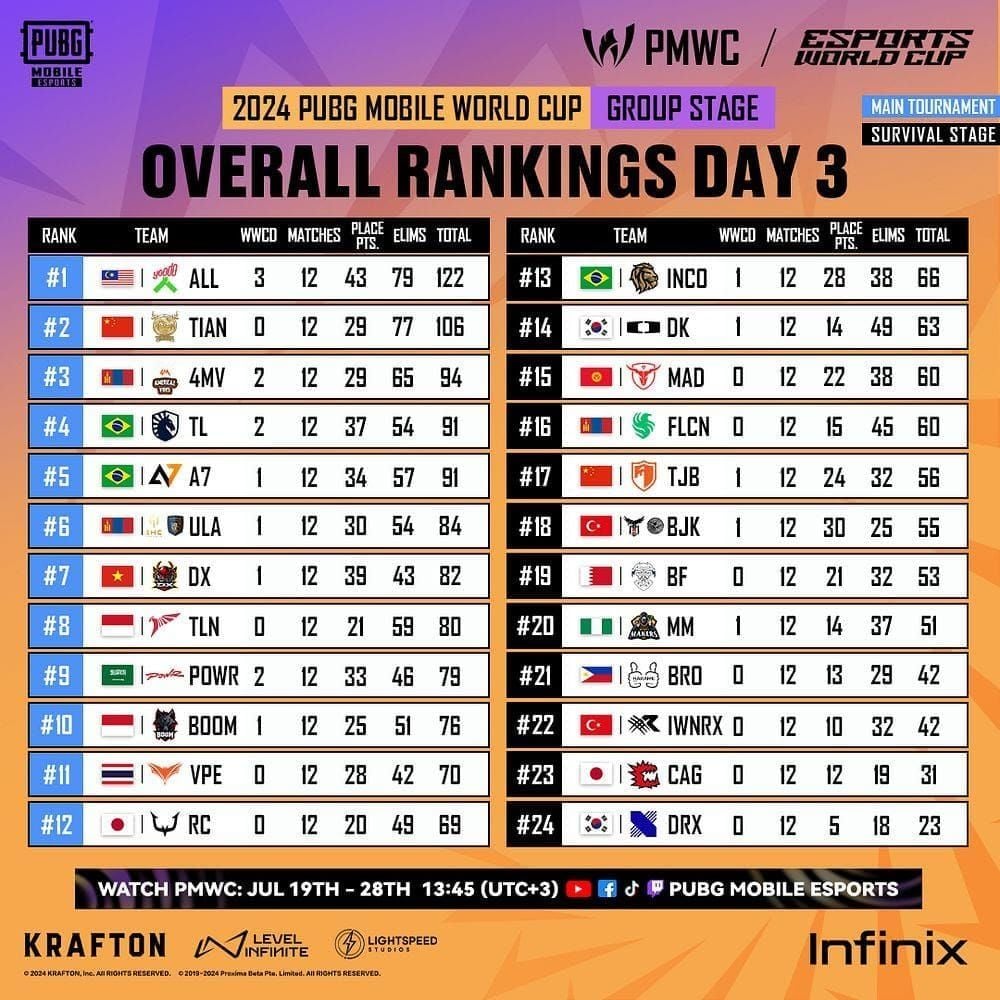
Learning from Champions
Strategies You Can Actually Use
Strategic positioning 2-3 circles in advance, utility maximization as tactical tools, selective engagement to avoid unnecessary early fights, and map specialization focusing on 1-2 environments initially.
Their training structure: 2-3 hours team scrimmage, individual mechanics practice, VOD review focusing on decision patterns, and strategic planning sessions. Performance analysis emphasized decision-making over raw statistics, plus mental preparation for pressure regulation.
FAQ
Who won PUBG Mobile World Cup 2025? Yangon Galacticos from Myanmar with 157 points, earning $547,000 and Myanmar's first major championship.
What strategies made them successful? Erangel dominance (101/157 points), balanced role distribution, superior utility management (127 smokes, 143 frags), and early positioning for late-game advantages.
How was prize money distributed? $3,050,000 total with $1,700,000 for Grand Finals. Yangon earned $547,000 total: $500,000 for first place, plus $29,000 from Groups and $18,000 from Survival Stage.
Which weapons dominated the meta? M416 with compensator/grip/stock, DBS dual-tube shotgun for close-quarters, and DP-28 LMG for zone control with 4x-6x scopes.
What was the tournament format? Three stages: Group Stage (24→8), Survival Stage (16→8), Grand Finals (16 teams, 18 matches). Smash Rule required 128+ points plus a Chicken Dinner to win.
What changes are coming? Rondo replaces Sanhok in PMSL Fall 2025, featuring Recall System, Sentry Guards, item drops, and no map stores for better competitive balance.

